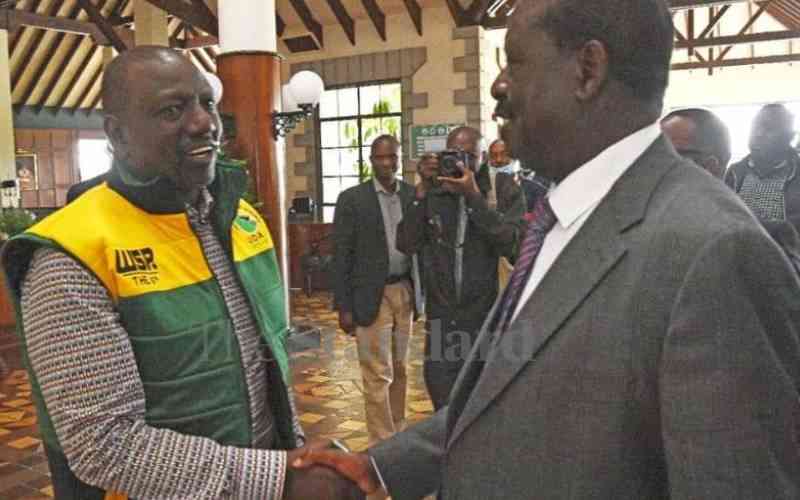×
The Standard e-Paper
Stay Informed, Even Offline

In becoming Kenya's fifth president, William Ruto symbolises determination to overcome the odds.
He is revolutionary in overturning attitudes on political practice and expectations; ruining dynastic dominance and sense of entitlement.